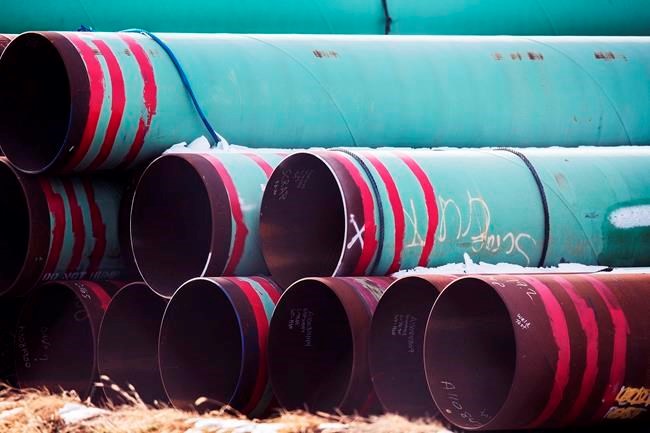CALGARY — Alberta must position itself as a clean energy leader to move forward in the aftermath of the Keystone XL pipeline cancellation, Alberta's trade envoy to Washington said Friday.
“We can make a very strong argument for further investment in the entire energy spectrum in Alberta,” James Rajotte said in an interview. "Any kind of energy (U.S. investors) would want to invest in, we would have in Alberta."
Rajotte, who gave a virtual address to the Canadian-American Business Council and economic development group Edmonton Global on Friday, said U.S. President Joe Biden's aggressive stance on climate change presents a challenge for Alberta's oil and gas industry. He said some Democrats in Congress have a negative view of the Canadian oilsands and its emissions record.
But Alberta's energy sector can still attract major capital investment from the U.S. if it focuses on innovations like carbon capture and storage and methane reduction, Rajotte said.
He added the province should also play up new green power projects companies have under way, such as the 450 MW Travers Solar facility that began construction this week as well as a plan announced earlier this month by Air Products Canada to build a $1.3-billion hydrogen plant in Alberta.
"Alberta is really at the forefront of so much of this," Rajotte said. "I tell companies, if you are doing something innovative . . . I want to know about it. That’s something for us to highlight."
Alberta's energy sector suffered a blow in January, when President Biden revoked the permit for TC Energy's Keystone XL pipeline project shortly after his inauguration. The company formally cancelled the project earlier this month, taking a $2.2-billion writedown.
Keystone's demise was the conclusion to a decade-plus battle that pitted the energy industry against environmentalists as oilsands producers sought to export Canadian crude. The death of the project also left the Alberta government, which had invested in the pipeline under Premier Jason Kenney in an effort to advance construction, on the hook for about $1.3 billion in costs.
The Trans Mountain pipeline project, which was purchased from Kinder Morgan Canada by the Canadian government in 2018, has also faced years of regulatory delay and opposition from environmental and Indigenous groups.
Despite those setbacks, Alberta Economy Minister Doug Schweitzer said energy companies have reason to be optimistic about the future, not the least of which is rising oil prices. The U.S. benchmark West Texas Intermediate near-month contract price ended the day Friday at $74 per barrel after starting the year at $49.
In an interview Friday, Schweitzer said he believes companies have a growing understanding of what they need to do to access investment capital in a world that is increasingly concerned about climate change. He pointed to a plan announced earlier this month by Canada's five biggest oilsands producers to achieve net zero greenhouse gas emissions by 2050.
Schweitzer, who began a cross-Canada speaking tour in June in an effort to promote Alberta as an investment destination, said the province must work to gain more recognition in the areas of clean tech and environmental, social and governance factors (ESG).
"The world has changed so quickly, and particularly the positioning of Alberta energy companies has changed and evolved so quickly over the last two years," Schweitzer said. "We really have to do a lot of engagement right now with external markets within Canada, as well as internationally, to make sure we go out and put our best foot forward."
This report by The Canadian Press was first published June 25, 2021.
Amanda Stephenson, The Canadian Press



